
Following the FDA's acceptance of the NDA, a PDUFA date of December 26, 2024 has been set for setmelanotide in patients as young as 2 years of age.

Following the FDA's acceptance of the NDA, a PDUFA date of December 26, 2024 has been set for setmelanotide in patients as young as 2 years of age.

Get caught up with our journal! Review some of the top stories from the Contemporary Pediatrics website over the last week, and catch up on anything you may have missed.

A CDC report reviews HPV vaccination trends in US Pacific Islands, revealing mixed progress towards the 2030 goal of 90% completion among girls by age 15.

Donna Hallas PhD, PPCNP-BC, CPNP, PMHS, FAANP FAAN, highlights the August issue of our journal with commentary and recommendations.
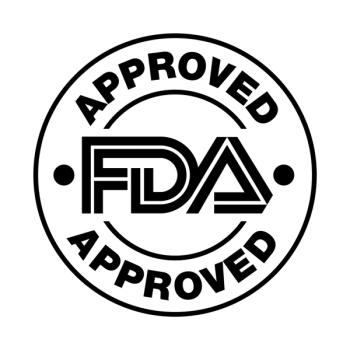
The federal agency advised manufacturers in June that 2024-2025 COVID-19 vaccines should be monovalent JN.1, with the preferred lineage being the KP.2 strain.

Healthcare providers should maintain heightened suspicion of parvovirus B19 in individuals presenting with symptoms, particularly those at high risk.

Lynn Malec, MD, joins Contemporary Pediatrics once again for a discussion of the hemophilia A space and how pediatric health care providers fit into care.

The investigational drug demonstrated promise in mitigating hemolytic disease of the fetus and newborn by blocking harmful antibodies.
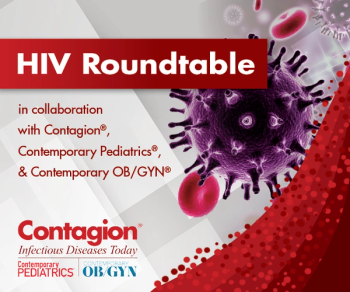
Expert discussion of several topics including diagnosis, clinical management in older adults, multidrug resistance, and long-acting injectables and PrEP.

The FDA approved anacaulase-bcdb for pediatric use, allowing its application for eschar removal in deep thermal burns for ages newborn to 18 years.

The USPSTF statement aligns with the 2015 recommendation on insufficient evidence for pregnancy iron deficiency screening or supplementation.

Findings show that that feeding mode is by far the most defining factor for microbial composition," wrote the study authors.

A JAMA Pediatrics study found 37% of adolescents with gender dysphoria began hormone therapy within 2 years, highlighting barriers and inequities in care.

Get caught up with our journal! Review some of the top stories from the Contemporary Pediatrics website over the last week, and catch up on anything you may have missed

An interactive text message program boosted vaping cessation rates by 35% among adolescents compared to a control group, a JAMA study found.
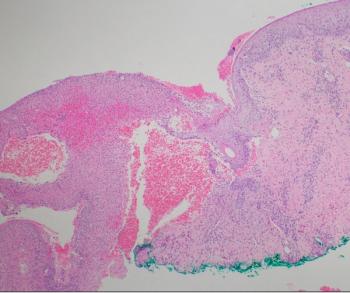
Can you diagnose this patient with a tender bump on the labia majora accompanied by fever and sore throat?

The approval is indicated for adult and pediatric patients who weigh at least 88 lbs (40 kg).

A 5-year-old boy with a history of asthma presented for a 1-year history of multiple episodes of emesis. What's the diagnosis?
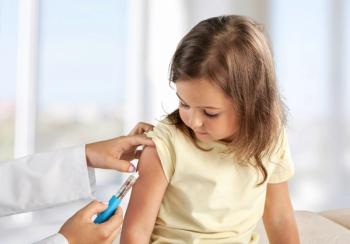
Among children born in 2020, vaccination coverage was 4 to 14 percentage points lower among those who were eligible for VFC versus non-eligible children.

How can tablet use contribute to expressions of anger and frustration among children aged 3.5 to 5.5 years?

Findings suggest outdoor interventions should focus on effective outdoor exposure patters to prevent myopia in children.

Lynn Malec, MD, joined us to discuss the phase 3 XTEND-Kids study of ALTUVIIIO in pediatric patients with hemophilia A.
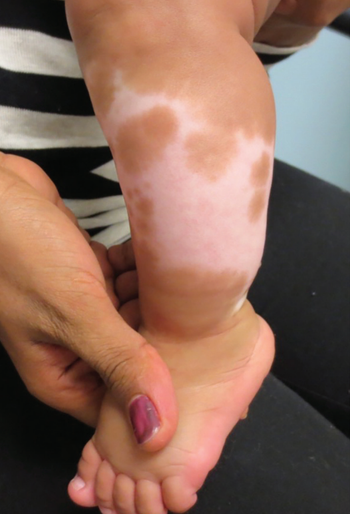
Standard treatment for vitiligo includes topical corticosteroids, topical calcineurin inhibitors, oral corticosteroids, and phototherapy, among others.

Get caught up with our journal! Review some of the top stories from the Contemporary Pediatrics website over the last week, and catch up on anything you may have missed.

The approval is indicated for adult and pediatric patients who weight at least 66 pounds (30 kilograms).

The US SPR has been updated to help clinicians address specific issues that may arise in patients using certain contraceptive methods.

Digital tools like health apps, texts, and telemedicine show promise in managing childhood obesity, but require sustained engagement for long-term impact.

Digital therapeutics help kids build emotional regulation and coping skills, supporting pediatric care while waiting for specialized mental health services.

Dressing changes are less painful for neonates and minimize the risk of bleeding or oozing. In addition, complete wound coverage with the dressing helps prevent dehydration and heat loss.

Many preterm infants are considered to be “caught up” to their peers during the toddler years, but evidence is mounting that even late preterm infants may experience ongoing academic and developmental delays.